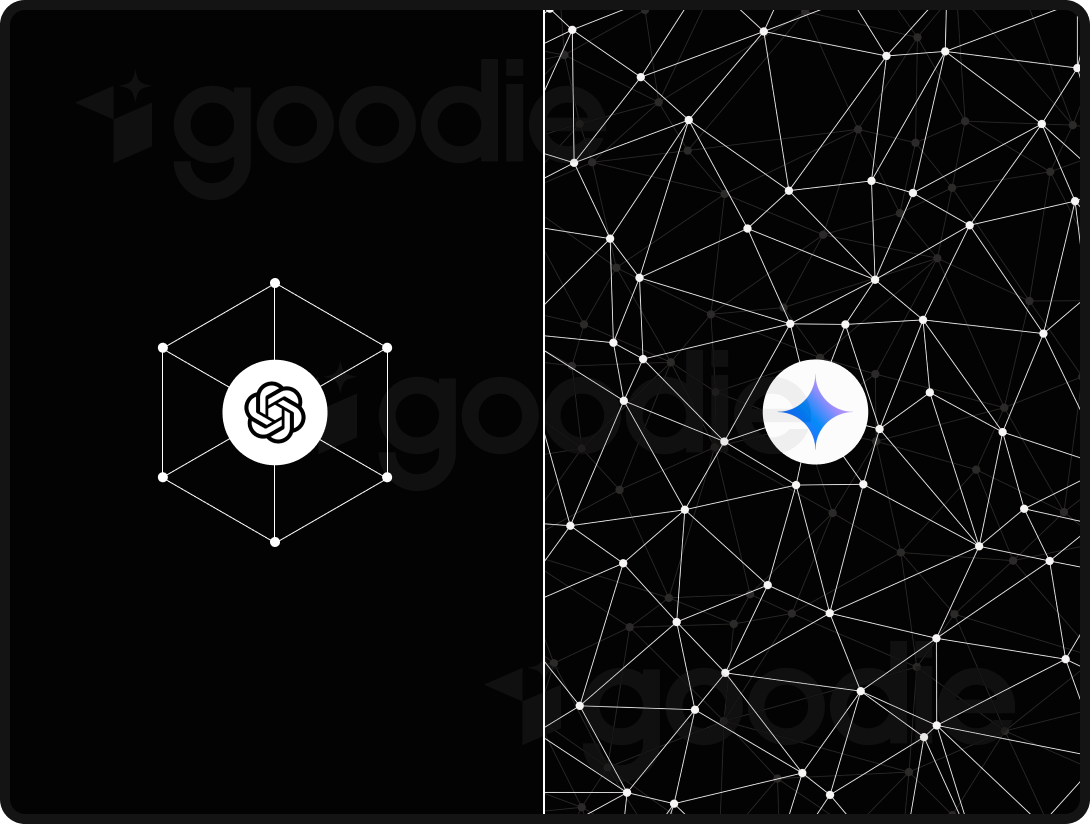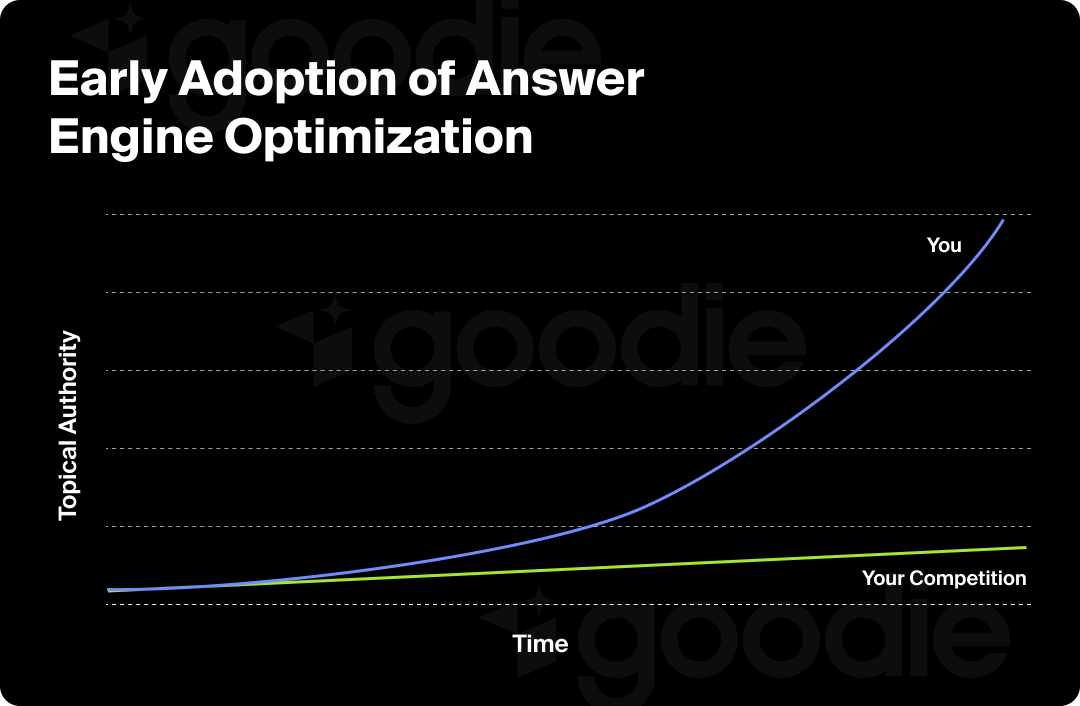

The nature of search has changed. Ensuring visibility for your brand across LLMs is the next step in owning search. Although there are foundations of AEO that are applicable across platforms, each LLM prioritizes aspects that affect brand visibility differently.
This guide explores practical strategies for Gemini optimization, technical implementation tips, and answers to common questions about this evolving technology.
Gemini processes information differently than traditional search engines. Google Gemini represents a significant step in this evolution. Google's latest family of multimodal AI models are designed to process and understand various types of data simultaneously, including text, software code, audio, images, and video.
Gemini powers Google’s AI Overview and is being progressively integrated into a wide array of Google's existing products and services. Similar to other advanced large language models (LLMs), Gemini utilizes a transformer architecture. However, a key differentiator is its native multimodality.
Unlike models trained primarily on text, Gemini has been trained from the ground up on diverse datasets encompassing various formats. Its architecture incorporates notable features such as a mixture-of-experts approach, which allows for more efficient processing of complex tasks, and a large context window, enabling it to handle and reason over vast amounts of information in a single prompt.

Gemini's inherent capability to understand and reason across multiple data types, such as text and images, provides it with a distinct advantage over unimodal models like GPT-4, which primarily focus on text-based input and output. This multimodal training allows for a more comprehensive grasp of context and the relationships between different forms of information, potentially leading to more insightful and nuanced answers.
When evaluating content, Gemini prioritizes materials that clearly answer specific questions users are asking. The system is designed to surface information from authoritative sources that demonstrate genuine expertise in their field. Content freshness plays a significant role as well, with Gemini favoring up-to-date and accurate information over outdated materials.
Gemini cites natural, conversational language that mirrors how people actually communicate. Unlike traditional search engines that might rely heavily on keyword analysis, Gemini understands context and intent behind queries. This understanding ensures it extracts meaning from well-structured content with clear organization, making information hierarchy more important than ever.

Create content that thoroughly addresses questions your target audience is asking. This involves developing content that not only provides direct and comprehensive answers to user queries, but also does so in a manner that is easily understood and crawled by AI bots.
Additional Tip: Regularly check Search Console for question-based keywords to identify new opportunities.
Gemini prioritizes citing answers from companies that demonstrate expertise in specific topics. Building a body of interconnected, in-depth content around your core topics helps establish this authority.
Not unlike traditional search, Gemini ranks content that's well-organized and easy to parse. Clear headings, concise paragraphs, bulleted lists, and logical flow make it easier for the system to extract relevant information.
Write in a conversational, human tone that aligns with how people actually ask questions. Avoid keyword stuffing or using overly technical language unless relevant to your target audience.
Additional Tip: For deeper insights, analyze voice search data from Google Search Console by filtering for longer queries, which typically come from voice search.
(Another) Additional Tip: Create a style guide that defines conversational parameters for your brand and ensures consistency across all content channels.
Gemini still heavily weighs Experience, Expertise, Authoritativeness, and Trustworthiness when choosing citations. Strategic implementation of E-E-A-T signals can significantly improve visibility.
Proactively disclose any potential conflicts of interest or biases related to your content. This ethical transparency enhances trustworthiness, a key component that Gemini evaluates when sourcing answers.
Knowing how to appeal to Gemini with your content is one thing—tracking performance is another. Measuring the success of your efforts on Gemini goes beyond using traditional organic metrics. While standard search rankings remain important, it only tells one part of the story. You’ll need another tool, such as Goodie AI, to track visibility and qualify priority topics for your brand.
Begin monitoring growth in search volume for branded terms volume as an indicator of increasing awareness and authority. Rising branded searches often correlate with greater visibility in answer engines. This metric provides insight into how your overall brand authority may be influencing Gemini's selection of your content as an information source.
Analyze click-through rates specifically for featured snippets where your content appears. Higher engagement with these snippets indicates that users find your answers valuable, which reinforces positive signals to Gemini. On your site, examine engagement metrics like time on page and interaction events for content that receives traffic from answer engines.
Optimizing for Gemini represents the evolution of search strategy in an increasingly answer-focused world. The shift toward conversational search experiences continues to accelerate, making adaptability essential for maintaining visibility. By implementing the strategies outlined in this guide, you can position your content to perform well in both traditional search results and emerging answer engine formats.
The most successful brands approach this evolution with a balanced perspective. They recognize that fundamental content quality remains paramount while acknowledging that presentation and structure now play equally important roles.

The competitive advantage gained through early adoption of these optimization practices compounds over time. As you build topical authority and refine your content approach, the gap between your organization and competitors widens. This separation becomes increasingly difficult to overcome, creating sustainable differentiation in crowded digital spaces.
Remember that answer engine optimization is not a replacement for traditional search strategies, but rather an extension of them. The technical foundation you've built through years of SEO refinement provides the perfect platform for these new approaches. By evolving your content strategy to embrace answer-focused formats while maintaining technical excellence, you create a powerful digital presence that thrives across the entire search ecosystem while providing genuine value to your audience.
No, Gemini will not completely replace Google Search in the foreseeable future. These technologies serve complementary purposes in Google's ecosystem. While Gemini excels at providing direct answers to specific questions, traditional search remains essential for exploratory queries, complex research, and discovering diverse viewpoints.
Optimizing for Gemini prioritizes answering questions comprehensively rather than focusing primarily on keywords. While traditional SEO has evolved, it still involves targeting specific search terms and building backlinks.
Gemini optimization, on the other hand, centers on creating authoritative, structured content that directly addresses user needs in a conversational format.
Rather than creating separate strategies, develop an integrated approach that serves both platforms. Focus on creating high-quality, structured content that thoroughly addresses user questions while maintaining traditional SEO best practices. This unified approach is more resource-efficient and creates a stronger overall digital presence.
Start by identifying overlapping priorities between traditional search and answer engines, such as comprehensive topic coverage, clear structure, and authoritative content. Create content briefs that address both sets of requirements simultaneously. Implement technical elements that benefit both systems, such as schema markup, clear information hierarchy, and optimized page experience.
As with traditional SEO, Gemini optimization is a medium to long-term investment. Initial improvements may be visible within a few weeks, particularly for specific questions where you provide exceptionally clear answers. However, building the topical authority and content ecosystem that performs well consistently in Gemini typically requires 3-6 months of dedicated effort.
The timeline varies depending on your starting point. Sites with existing topical authority may see faster results than those building expertise from scratch. Regularly monitor performance indicators and be prepared to refine your approach based on results. Remember that optimization is an ongoing process rather than a one-time effort, requiring continuous refinement as the system evolves.



